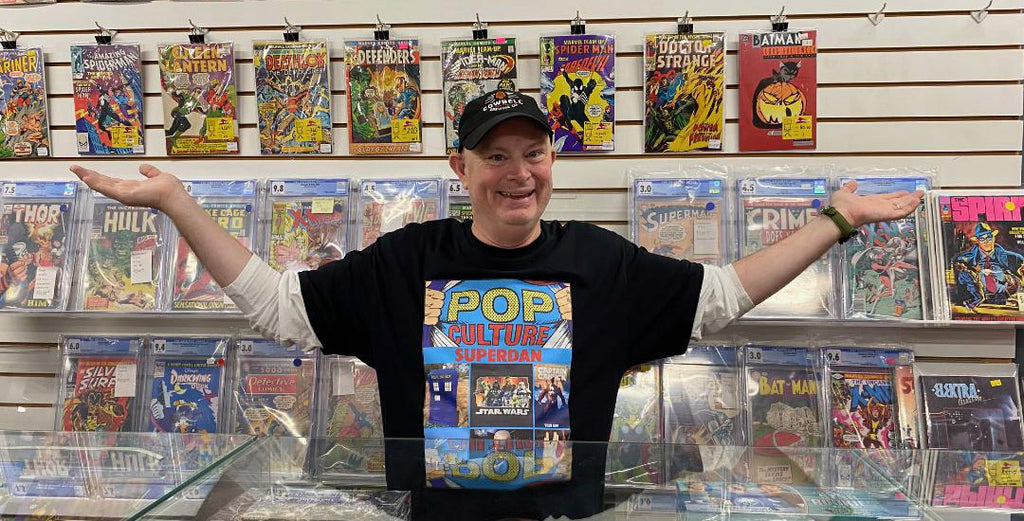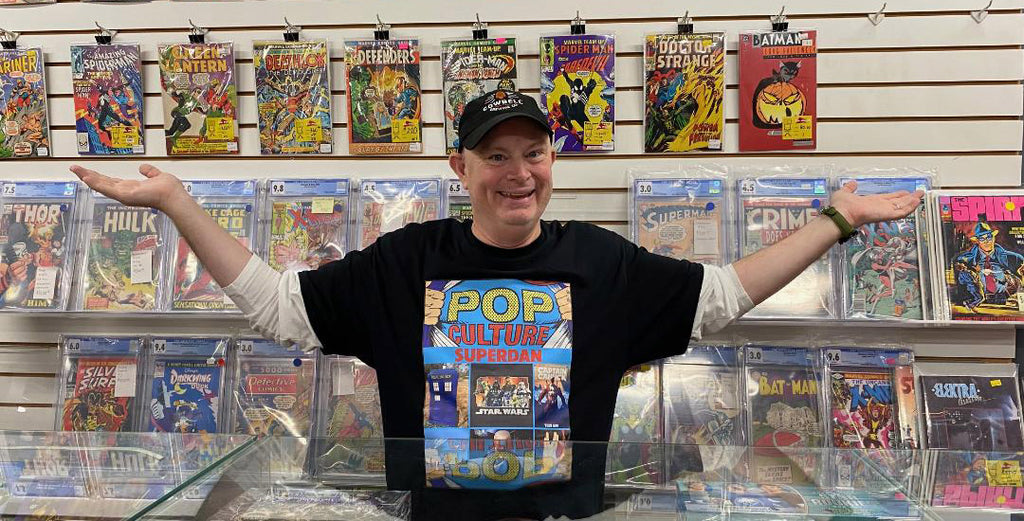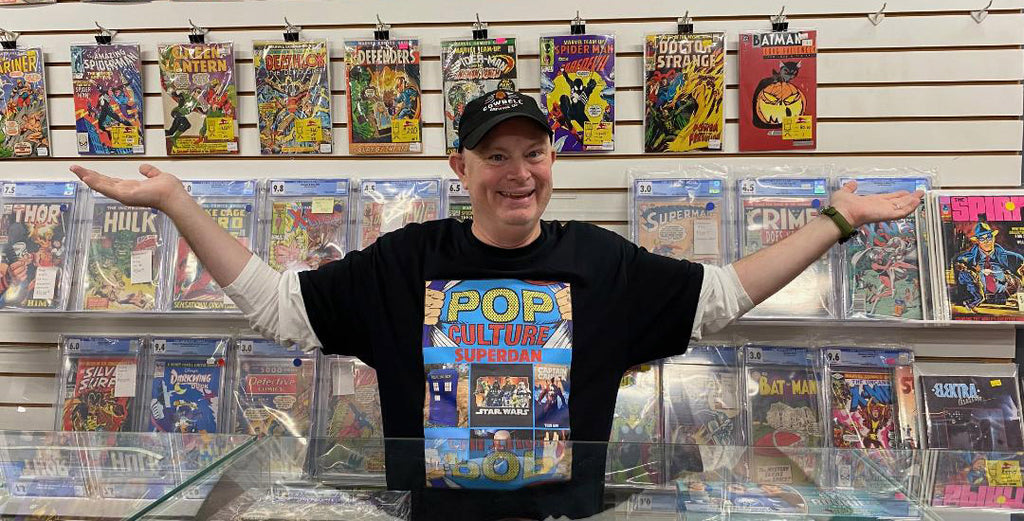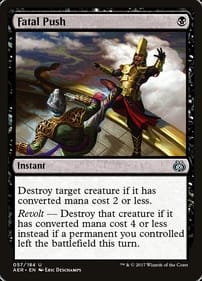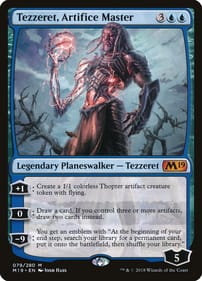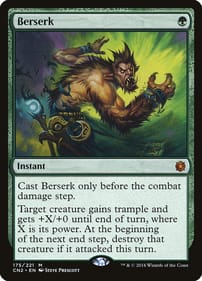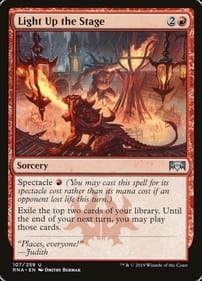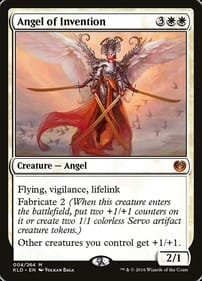Somebody Please Adapt the Jason Lutes Graphic Novel Berlin
By Dan BrownThere’s no law saying a comic has to be anything other than a comic, but every fan has a dream project they would like to see adapted for the big or small screen.For me, it’s the Jason Lutes graphic novel Berlin. Clocking in at nearly 600 pages, the sprawling epic is ripe for the plucking as a multi-season series on a streaming service like Netflix. It is, to borrow a term from comic scholar Andrew Deman, preposterously cinematic.The book depicts life in the German city between the First and Second World Wars. Even though the reader knows how the story will turn out, it’s a vivid portrait of a changing society and the individuals who are driving that change, or find themselves caught up in it.It’s a historical epic, a portrait of the Jazz Age, a romance, a journey of self-discovery, and so much more.I did a quick Google search but didn’t find anything saying Lutes has sold the rights. I would be shocked if he hasn’t been approached by producers.The story was originally serialized over 20 years, then collected as one volume in 2018. Berlin was one of the selections last year for the L.A. Mood’ Graphic Novel Group book club. When I finished reading the hefty tome, I immediately flipped back to the front to start reading again. I don’t do that with many graphic novels.My first impression was how Berlin reminded me of HBO’s The Wire. It follows a large cast of characters, most of them fictional but with some real-life historical figures mixed in. Different characters rise to prominence at different points in the story.There are proto-Nazis, communists, social climbers. jazz musicians. Jewish families, unemployed labourers, confused children, and a young woman looking for her future. And, best of all for this reader, the central character is a disillusioned journalist.Someone who’s in the background in an early scene will return later as a lead character. Different places around the city become important at different moments. Seemingly isolated incidents ripple outwards, affecting everyone..Apart from catching the spirit of the times, the zeitgeist, the triumph of Berlin is how it shows Hitler’s rise wasn’t inevitable. Germany could very well have gone in another direction.The challenge for anyone who adapts the book would be in capturing that sense of how between-the-wars Germany was up for grabs. In that historical moment, there were many possible future fatherlands.It would be challenging to capture that sense of uncertainty on the small screen, but Lutes has already provided the storyboards in the form of this book. How about it, Hollywood?Do you have any comics or graphic novels you would like to see adapted? I’d love to hear about them in the comment section below.And yes, just because Lutes may have had offers to adapt his masterwork, that doesn’t mean he has to accept. He might be content just letting it remain a comic. Dan Brown has covered pop culture for more than 31 years as a journalist and also moderates L.A. Mood’s monthly graphic-novel group.
Sympathy for the Joker
By Dan BrownAs diehard comic fans already know, a new Joker film – the second focusing on Batman’s nemesis – arrives in theatres October 4.Call me crazy, but I don’t remember this level of interest in the Clown Prince of Crime when I was a boy falling in love with comics in the 1970s.What my buddies and I wanted was a Batman movie, not one about the Joker.And when we finally did get a big-screen version of the Dark Knight’s story in 1989, it was as much about Bats as Mr. J (and Jack Nicholson was a way bigger star than Michael Keaton).All of which is just another way of saying: Supervillains have never been as compelling as they are in 2024.We all know what heroes do: They restore order, they bind the wounded, they bring justice to the world.Villains, on the other hand, get to kick ass and take names.Would you rather be stuck in an elevator with a boring costumed do-gooder or a way-cool badass who makes his or her own rules? Who has the better theme song – Luke Skywalker or Darth Vader? Who gets all the hot girls, crossing guards or outlaw bikers?It’s true, a good guy is only admirable to the extent he can overcome the traps laid for him by the enemy, which is why you’ll see online memes asking, “Which superhero has the best rogues’ gallery?”Back in those early days as a comic lover, the answer for me was the Fantastic Four – who fought the likes of Galactus, Annihilus, and Doctor Doom. Even minor villains like Thundra were cool in their own way. But as an adult comic fan, I have to give it to Dick Tracy, whose long list of foes includes Big Boy, the Mole, the Brow, Oodles, Flyface, Measles, Hairy, No Face, Smokes, Mumbles, and Pruneface.So what changed so that villains became respectable? Somewhere along the way there was a shift in the way they were depicted; criminals went from being anti-social monsters to real people to the coolest cats around.In my lifetime, I don’t think it was a comic innovation that sparked the change in how villains are perceived. It was a movie, namely the 1972 motion picture The Godfather, with its famous portrayal of the Corleone crime family. Hard to believe, but the notion criminals were regular family men was a scandalous one at the time. I remember adults being shocked by it. It turns out baddies love their children, enjoy Sunday dinners, get frustrated at work, and do everything else the rest of us do. They aren’t insane misanthropes after all, just maybe a little misguided.The Godfather was made possible by the abolishing of Hollywood’s Production Code in 1968. No longer did filmmakers have to show crime doesn’t pay.The end result: In pop culture, the divide between good and bad shrank.Fast-forward to today (comics no longer have an industry censor, either) and what you have are criminals who are relatable. They have understandable motives. And the heroes who square off against them are morally grey – think the Watchmen, Hancock, the Boys.One of my favourite portrayals of a supervillain came in 1987’s Superman No. 2, in which comic creator John Byrne absolutely nailed one of comicdom’s great scofflaws, Lex LuthorThe premise: Luthor had commissioned the invention of a supercomputer to crack the mystery of Superman’s secret identity. With this knowledge, the bald crook intended to crush his adversary.Fully programmed, the machine spits out its answer at the end of the issue: Clark Kent is Superman. Simple, right?Yet Luthor can’t bring himself to believe a being with the powers of a god would choose to live among mere mortals as one of them. Byrne was right on the money. If Luthor was a real person, he WOULD be brilliant enough to create a device that could unmask Superman. And Luthor WOULD be arrogant enough to think he knows better. Luthor’s tragedy is that he’s sure Superman thinks the same way he does. He can’t stomach the idea of someone being able to submerge their own ego – because he’s ego-driven. It’s a failure of empathy, which is the true root of all evil.Dan Brown has covered pop culture for more than 31 years as a journalist and also moderates L.A. Mood’s monthly graphic-novel group.
Pedro Pascal a Meaningful Choice to Play Reed Richards
By Dan BrownDepending on which news source you believe, Pedro Pascal may be the next actor to play superhero scientist Reed Richards, the pliable leader of the Fantastic Four also known as Mister Fantastic.Just the fact the big brains at Marvel Studios are talking to Pascal tells us two things.First, Marvel wants to get the next Fantastic Four movie right.Second, the Marvel brain trust realizes they are in a slump.If Pascal does get the part, it would be a good sign for the many millions of Marvel movie fans on this planet. The Chilean-born performer is known for his acting on shows like The Mandalorian, The Last of Us, and Game of Thrones, as well as for giving Bad Bunny a helping hand during the musician’s Saturday Night Live appearance last month. In addition to being hugely popular, Pascal is immensely talented. It’s no surprise Marvel’s bosses want to tap into his star power. He is one of the few actors who could pull off the role; Richards is not exactly an exciting character, being part genius and part rubber band. Pascal would bring excitement, humour, and gravity to the part.Pascal can take comic-book dialogue – “We’ve got to get to the bottom of his strange powers, learn how to control them. After all, Sue, he’s our only son” – and sell it. The fact he brings Star Wars enthusiasts, gamers and other fandoms to the table is an added bonus, and I’m sure part of the calculus for why Marvel is apparently in discussions with him.Longtime Marvel fans know that the Fantastic Four is, well, a tricky property to get right on the silver screen. If I am counting correctly, there have been four attempts to make movies based on the title Stan Lee dubbed “the world’s greatest comic magazine.”The Roger Corman-directed first shot wasn’t even meh enough to get a video-cassette release. The second and third were B movies constrained by their low budgets, and the most recent attempt is considered an abomination in the sight of the few fans who paid to see it.Is a new Fantastic Four movie a special-effects picture? Is it a family story? Is it a comedy or a drama? It’s all of those. And no filmmaking team has yet been able to get the tone of the Fantastic Four right. Even more significantly, adapting FF for the big screen means bringing one of pop-culture’s great villains, Doctor Doom, into the mix.Nor can anyone ignore the context these reported talks are taking place in. The Marvels, the latest feature film from the studio, had the worst debut in Marvel Cinematic Universe history when it landed in theatres earlier this month, failing to clear $50 million in its opening weekend. It also had the worst second weekend in MCU history, despite strong word of mouth.Not all of this can be blamed on the recently concluded strike by Hollywood actors, which prevented stars like Brie Larson from hitting the talk-show and podcast circuit to drum up interest in the motion picture. Superhero fatigue is a real thing, but don’t take my word for it. I wrote in the spring in this space about how Disney CEO Bob Iger feels the Marvel brand has been “diluted” over the pandemic by the release of too many streaming shows. Think Hawkeye, Falcon and the Winter Soldier, Loki, Moon Knight, She-Hulk and on and on. Fantastic Four is one of the richest potential mines left for Marvel Studios to plunder. The downside of getting it wrong is huge. The potential upside? If they get it right, a Fantastic Four movie starring Pedro Pascal just might save the company. Dan Brown has covered pop culture for more than 30 years as a journalist and also moderates L.A. Mood’s monthly graphic-novel group.


